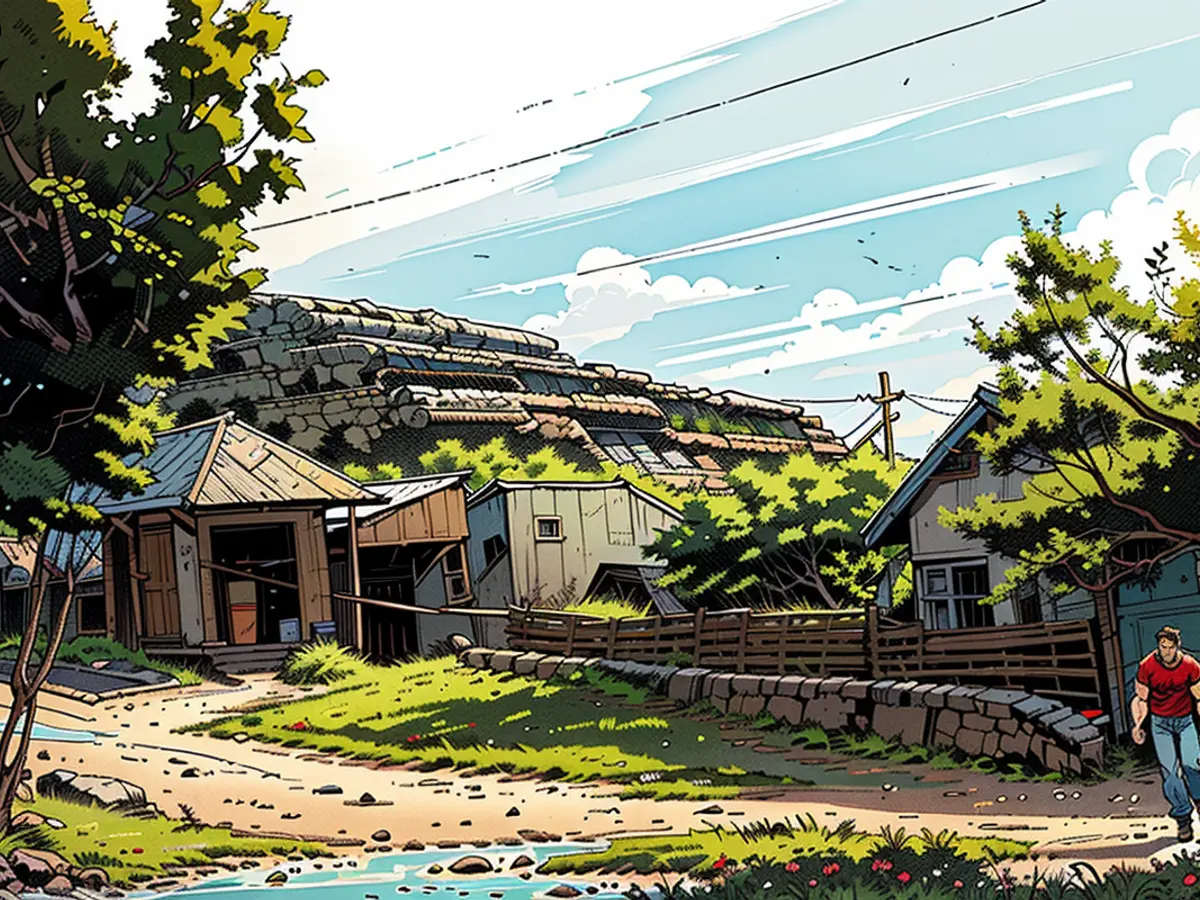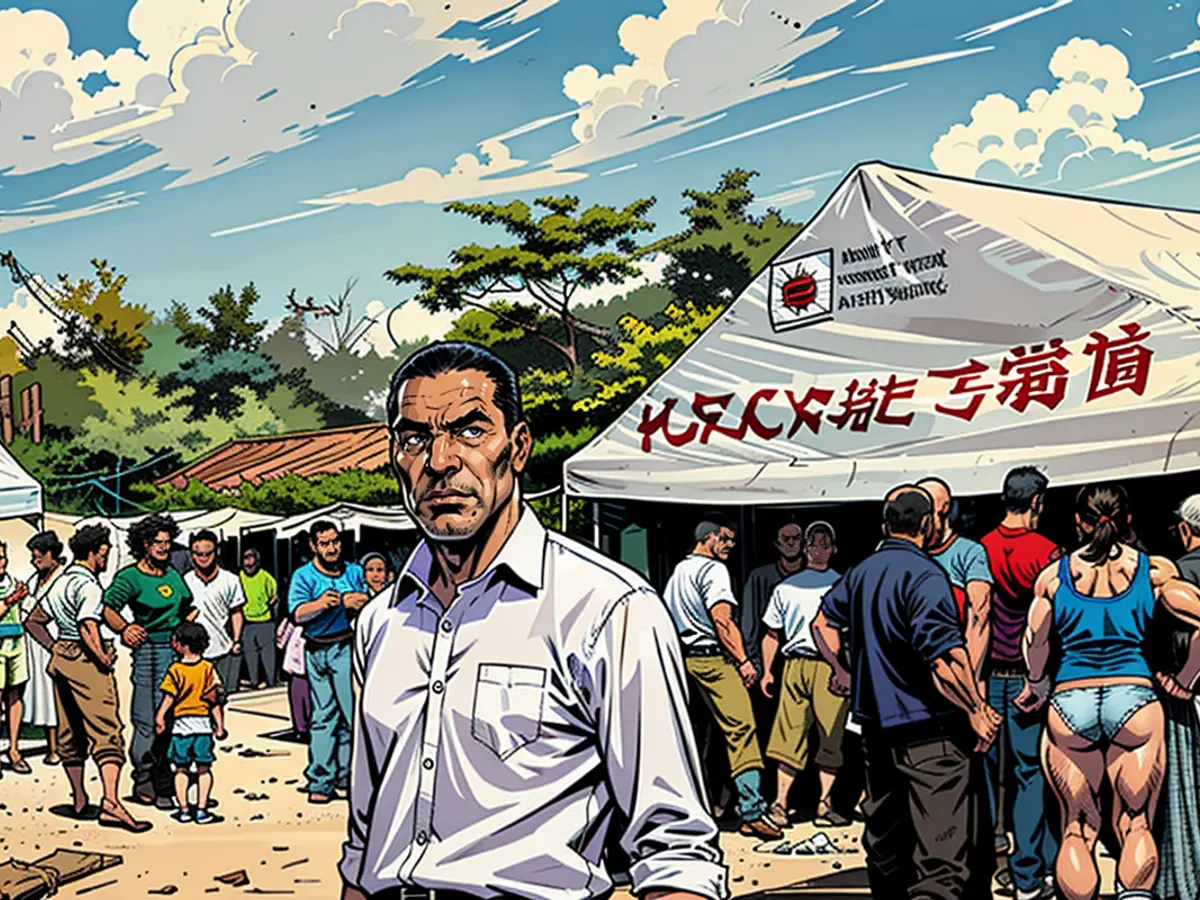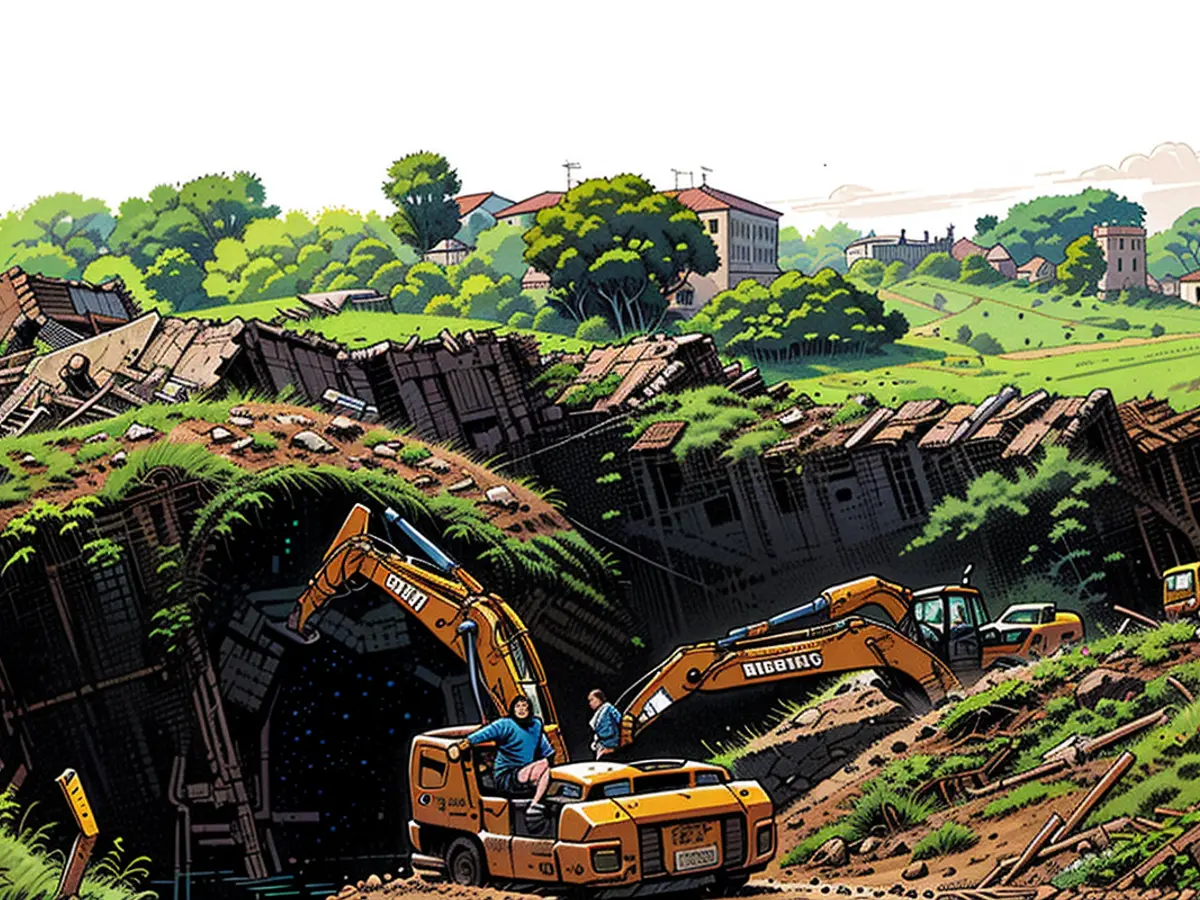Discarded from the Trash Bin - "Persistently Anxious"
At least 34 individuals perish as a massive pile of trash in Uganda's capital, Kampala, collapses, engulfing numerous houses. Neighbors on the outskirts of the dump had long anticipated this tragedy. Now, the government faces public scrutiny.
Bulldozers painstakingly clear layer upon layer of the foul-smelling mass. With each push, the foul odor intensifies, emanating from the colossal mountain of refuse. Swarms of flies buzz around - rust-colored, polluted water drips from the shovels. Some bulldozer operators are armed with up to three face masks to endure the stench.
Despite nearly a week having passed since a mountain of waste in Kampala slid down like an avalanche, burying numerous homes, rescue operations continue. Only 14 individuals have been able to free themselves from their homes, some requiring hospitalization. 34 bodies have been recovered in recent days. However, the search for missing persons continues. The Red Cross, overseeing the rescue mission, states that the likelihood of finding more survivors after nearly a week is nonexistent.
As a safety measure, all residents in the vicinity of the massive dump are now being urged to evacuate their homes. The reason: The rainy season is approaching, posing a risk that more piles of waste may collapse. Consequently, the city administration has mandated that all remaining houses in the vicinity must be evacuated.
The garbage pile had been inching closer to houses
Proscovia Nabafu's home is one of those marked with a red cross on the wall, a yellow warning tape fluttering at her gate. The 44-year-old mother of four is packing dishes into a box in her living room. "All those living within the restricted area must evacuate their homes because it's risky," she says, looking anxious. "We used to remove the garbage, now we're being ordered to leave." She has sent her children to relatives so she can pack her belongings in peace. She points to the chickens in her yard and the banana trees bearing fruit. She is at a loss as to what to do next. "The Prime Minister visited and promised compensation, but I don't know where to go now."
When she bought the plot twelve years ago and built her house with her savings, there were no garbage piles in the neighborhood. "The pit where the garbage was dumped was behind those hills, we hardly noticed it," she explains. But in recent years, one of the garbage piles had gradually moved closer to her house. This brought numerous issues, she says: "The foul odor, the flies - it was so unbearable that I couldn't let my children play outside anymore, they were constantly sick and coughing," says Nabafu. Her gaze drifts upwards, behind her house, where another pile of waste looms like a sand dune: "We always feared that this would happen one day."
The landfill in the Kiteezi district on the outskirts of the city has been a headache for Kampala's city administration for years. When it was established in 1996, it was a hole between three hills. Trucks could drive up one of the hills and simply dump everything: The unsorted waste would then automatically slide down the slope. But since 2008, the hole has been filled. Even back then, the city administration declared that a new landfill must be built urgently. For years, suitable sites were sought in the capital's belt. In 2016, a plot of land outside the city was purchased. But the local residents and local MPs rebelled. To build a proper landfill where waste is sorted, disposed of, and stored properly, money is still lacking. So, waste continues to accumulate in Kiteezi.
Failure to address waste management

Approximately 2,500 tons of waste are generated daily in Kampala, home to around two million inhabitants. Approximately 1,200 tons of it are collected by trucks, the remainder being burned or illegally dumped in roadside gutters. There is no waste separation in Uganda: From banana peels to electronic waste, everything ends up unsorted in a pile.
While neighboring countries like Rwanda and Kenya have already adopted waste separation, recycling plastic, and producing biogas in composting facilities, Uganda's government has yet to embrace this movement. It was not until 2022 that the national waste disposal plan was announced, but implementation has been slow as no budget has been allocated.
In the courtyard of the Kiteezi Primary School, the Red Cross has erected large white tents. Around 120 people, mostly children, are sitting and lying on simple tarpaulins inside. Behind them are seven portable toilets. Mattresses, toilet paper, soap - everything is in short supply. Yet, more individuals like Nabafu are arriving by the hour who are no longer allowed to sleep in their homes. "The Ministry of Disaster Preparedness has provided food and tasked us with caring for these people for some weeks," says John Cliff Wamala from the Red Cross in Uganda. "We appeal to the public and the churches to donate mattresses, diapers for children, and hygiene items for women, as these are desperately needed."
Standing next to him is Muwada Nkunyingi in an ironed shirt, his fine suit pants tucked into rubber boots. The MP for the district where Kiteezi is located is from the opposition and belongs to the NUP (National Unity Platform) party. Consequently, he is also critical of the government. "For years, I have repeatedly warned in parliament that this landfill is a danger," he rants. Now, the government refuses to take responsibility, he alleges, and makes it clear: "Even the number of missing persons is significantly underreported, it is likely that many more have been buried."
In the middle of the commotion, a tiny man in coveralls, sporting a bright yellow vest emblazoned with "KCCA Landfill" on his back, gives a casual nod. He acknowledges, "Yea, I get it, there's plenty more individuals that've been hidden there." He introduces himself as Ken Kizito. "Especially on Saturdays, you've got a swarm of kiddos and young'uns coming in to sort through the junk, searching for plastics and electronic waste," he clarifies. This time of year, particularly with school finishing up and exam costs looming, students flood the dump in search of saleable treasures.
As clean-up operations escalate, it's now off-limits to dump waste here. No more tiresome trucks carrying trash can be found here. At the beginning of the week, trash mountains rose up to 3 meters high across the city. In response, the authorities acted swiftly and requested that waste trucks be transported to a landfill located in the neighboring Entebbe, approximately 30 kilometers away. Unfortunately, this landfill is quite close to Lake Victoria's shore. Concerned environmentalists warn of a pending pollution disaster.
This text has been paraphrased.
The government is now under intense public scrutiny, following the collapse of a massive garbage pile in Kampala that resulted in numerous deaths and homes being buried. The Commission, responsible for overseeing waste management in the city, has come under particular criticism for failing to address the issue effectively.
In response to the incident, The Commission is currently reviewing its waste management strategies and policies in an effort to prevent future tragedies. They are working closely with local authorities and community leaders to ensure proper disposal of waste and address the root causes of the problem in Kampala.








